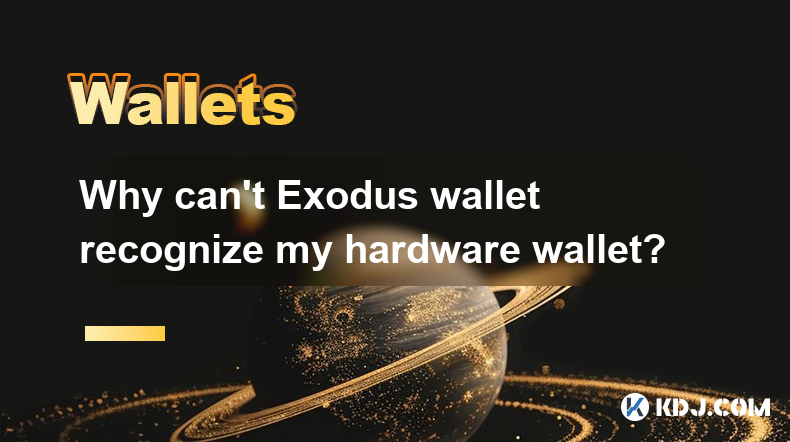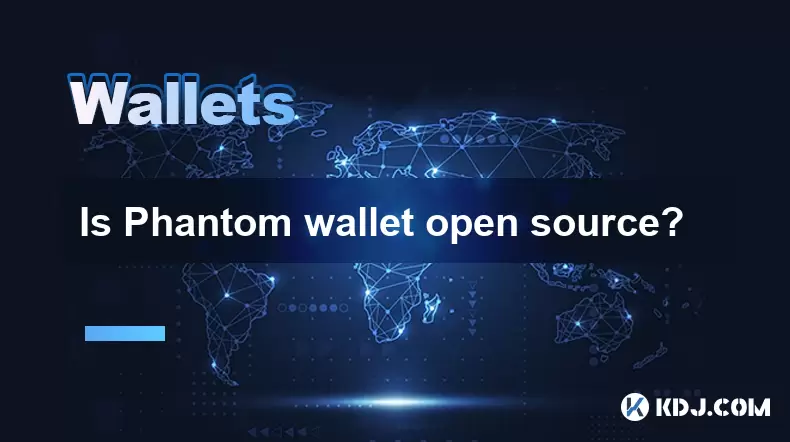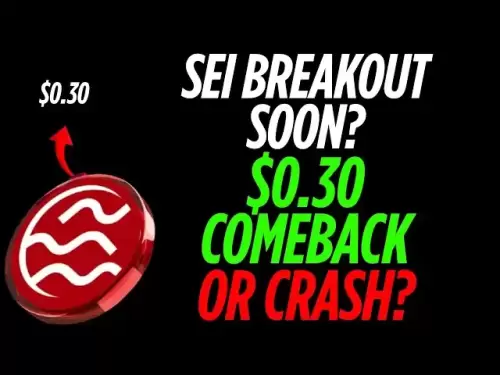-
 Bitcoin
Bitcoin $109,583.2239
0.19% -
 Ethereum
Ethereum $2,583.4612
0.48% -
 Tether USDt
Tether USDt $1.0003
-0.04% -
 XRP
XRP $2.2681
0.70% -
 BNB
BNB $659.9218
-0.52% -
 Solana
Solana $151.4961
-0.37% -
 USDC
USDC $0.9999
-0.02% -
 TRON
TRON $0.2861
1.20% -
 Dogecoin
Dogecoin $0.1718
0.04% -
 Cardano
Cardano $0.5960
-0.07% -
 Hyperliquid
Hyperliquid $40.1233
2.85% -
 Sui
Sui $2.9974
2.48% -
 Bitcoin Cash
Bitcoin Cash $497.1279
-1.76% -
 Chainlink
Chainlink $13.7275
-0.22% -
 UNUS SED LEO
UNUS SED LEO $9.0241
0.70% -
 Avalanche
Avalanche $18.5536
-0.88% -
 Stellar
Stellar $0.2421
1.39% -
 Toncoin
Toncoin $2.8593
-0.51% -
 Shiba Inu
Shiba Inu $0.0...01187
-0.07% -
 Litecoin
Litecoin $90.0023
2.90% -
 Hedera
Hedera $0.1590
2.79% -
 Monero
Monero $322.1495
0.00% -
 Polkadot
Polkadot $3.5453
-1.00% -
 Dai
Dai $1.0000
-0.01% -
 Bitget Token
Bitget Token $4.5733
-1.06% -
 Ethena USDe
Ethena USDe $1.0002
-0.01% -
 Uniswap
Uniswap $7.6345
3.03% -
 Aave
Aave $279.2583
0.47% -
 Pepe
Pepe $0.0...01003
-1.52% -
 Pi
Pi $0.4941
-0.32%
Why can't Exodus wallet recognize my hardware wallet?
Exodus wallet may not recognize your hardware wallet due to compatibility issues, outdated software, or incorrect connections; ensure both are updated and properly connected.
Apr 09, 2025 at 05:57 pm

Introduction to Exodus Wallet and Hardware Wallets
Exodus wallet is a popular software wallet that supports a wide range of cryptocurrencies and offers a user-friendly interface. It is designed to help users manage their digital assets securely and efficiently. On the other hand, hardware wallets are physical devices that store private keys offline, providing an additional layer of security against online threats. Common hardware wallets include Ledger, Trezor, and KeepKey. Integrating a hardware wallet with Exodus can enhance the security of your cryptocurrency holdings, but sometimes users encounter issues where Exodus fails to recognize their hardware wallet.
Common Reasons for Non-Recognition
There are several reasons why Exodus might not recognize your hardware wallet. Compatibility issues are a primary concern; not all hardware wallets are supported by Exodus. For instance, Exodus supports Ledger Nano S, Ledger Nano X, and Trezor One, but it may not support newer models or other brands. Outdated software on either the hardware wallet or the Exodus application can also cause recognition problems. Additionally, incorrect connection methods or driver issues can prevent the hardware wallet from being detected by Exodus.
Checking Hardware Wallet Compatibility
Before attempting to connect your hardware wallet to Exodus, it's crucial to verify that your device is compatible. Visit the Exodus support page to check the list of supported hardware wallets. If your hardware wallet is not listed, it may not be compatible with Exodus. For example, if you have a newer model of a Ledger or Trezor that is not yet supported, you will need to wait for an update from Exodus or consider using a different wallet that supports your device.
Updating Software and Firmware
Ensuring that both your hardware wallet and the Exodus application are running the latest software versions is essential for proper recognition. For hardware wallets, follow these steps:
- Ledger: Open the Ledger Live application, go to the "Manager" tab, and check for firmware updates. Follow the on-screen instructions to update your device.
- Trezor: Use the Trezor Suite to check for firmware updates. Navigate to the "Firmware" section and follow the prompts to update your device.
For the Exodus wallet, follow these steps:
- Open the Exodus application.
- Click on the settings icon (gear icon) in the bottom left corner.
- Scroll down to the "About" section and check the current version.
- If an update is available, follow the on-screen instructions to download and install the latest version.
Correct Connection Methods
Properly connecting your hardware wallet to your computer is crucial for Exodus to recognize it. Here are the steps to ensure a correct connection:
- USB Connection: Use the USB cable provided with your hardware wallet. Connect one end to the hardware wallet and the other to your computer. Ensure the connection is secure.
- Unlock Your Hardware Wallet: Enter your PIN to unlock your hardware wallet. This step is necessary for the device to communicate with Exodus.
- Open Exodus: Launch the Exodus application on your computer.
- Connect to Hardware Wallet: In Exodus, click on the settings icon, then select "Hardware Wallet" from the menu. Follow the on-screen instructions to connect your device.
Troubleshooting Driver Issues
Sometimes, driver issues can prevent Exodus from recognizing your hardware wallet. Here are some steps to troubleshoot and resolve these issues:
- Check Device Manager: On Windows, open the Device Manager and look for any devices with a yellow exclamation mark. This indicates a driver issue.
- Update Drivers: Right-click on the device with the issue and select "Update driver." Follow the prompts to search for and install the latest driver.
- Reinstall Drivers: If updating doesn't work, you can uninstall the driver and then restart your computer. Windows should automatically reinstall the driver upon reboot.
- Use Manufacturer's Software: For Ledger and Trezor, use their respective software (Ledger Live and Trezor Suite) to manage and update drivers.
Verifying Hardware Wallet Settings
Sometimes, the settings on your hardware wallet can affect its ability to be recognized by Exodus. Here are some settings to check:
- Browser Support: Ensure that your hardware wallet is set to allow connections from the browser. For Ledger, this can be done through the Ledger Live application under the "Settings" tab.
- FIDO U2F: Some hardware wallets have FIDO U2F enabled by default, which can interfere with wallet connections. Disable this feature if it's enabled.
- PIN and Passphrase: Ensure that your PIN and any passphrase are correctly entered when unlocking your hardware wallet.
FAQs
Q: Can I use a hardware wallet with Exodus on a mobile device?
A: Currently, Exodus does not support hardware wallets on mobile devices. You can only use hardware wallets with the desktop version of Exodus.
Q: What should I do if my hardware wallet is recognized but I can't access my funds?
A: If your hardware wallet is recognized but you can't access your funds, ensure that you have the correct PIN and passphrase entered. Also, check if the specific cryptocurrency you are trying to access is supported by both your hardware wallet and Exodus.
Q: How can I ensure the security of my hardware wallet when using it with Exodus?
A: To ensure the security of your hardware wallet, always keep your device firmware updated, use strong and unique PINs and passphrases, and never enter your seed phrase on any device other than your hardware wallet. Additionally, use Exodus on a secure and trusted computer.
Q: Is there a way to manually add a hardware wallet to Exodus if it's not automatically recognized?
A: Currently, Exodus does not support manual addition of hardware wallets. If your hardware wallet is not automatically recognized, you should check for compatibility, update software, and ensure correct connection methods as outlined above.
Disclaimer:info@kdj.com
The information provided is not trading advice. kdj.com does not assume any responsibility for any investments made based on the information provided in this article. Cryptocurrencies are highly volatile and it is highly recommended that you invest with caution after thorough research!
If you believe that the content used on this website infringes your copyright, please contact us immediately (info@kdj.com) and we will delete it promptly.
- Coinbase, Wormhole, and the Crypto Exchange Evolution: What's the Deal?
- 2025-07-04 06:50:12
- Solana Price Analysis: Navigating Institutional Demand and Market Crossroads
- 2025-07-04 07:15:13
- Arctic Pablo Coin: The Meme Coin Melting Faces in 2025
- 2025-07-04 07:15:13
- Dogwifhat (WIF) Price Surge: Meme Coin Mania or Something More?
- 2025-07-04 06:30:13
- Shiba Inu Killers and Crypto Coin Myths: Navigating the Investment Landscape in 2025
- 2025-07-04 07:30:13
- Meme Coin Mania: Why Alpha Groups and Investment Radars Are Eyeing LILPEPE
- 2025-07-04 07:30:13
Related knowledge

How to cancel a pending transaction in Phantom wallet?
Jul 03,2025 at 07:21pm
Understanding Pending Transactions in Phantom WalletA pending transaction in the Phantom wallet occurs when a user initiates a transfer or interaction with the Solana blockchain, but it hasn't yet been confirmed by the network. This can happen due to various reasons such as low transaction fees, network congestion, or incorrect gas settings. It's import...

How to see the estimated value of my tokens in Phantom wallet?
Jul 04,2025 at 12:21am
What is Phantom Wallet?Phantom wallet is one of the most popular cryptocurrency wallets designed for the Solana blockchain. It allows users to store, send, receive, and manage various tokens built on Solana, including SPL tokens and NFTs. The wallet offers a user-friendly interface, making it accessible for both beginners and advanced users in the crypt...

How to lock my Phantom wallet extension?
Jul 03,2025 at 11:14am
What Is the Phantom Wallet and Why Lock It?The Phantom wallet is a popular non-custodial cryptocurrency wallet designed for interacting with the Solana blockchain. Supporting both browser extensions and mobile apps, Phantom allows users to store, send, receive, and stake SOL tokens, as well as interact with decentralized applications (dApps). Securing y...

Does Phantom wallet offer two-factor authentication (2FA)?
Jul 03,2025 at 09:00am
Understanding Phantom Wallet and Its Security FeaturesPhantom wallet is a widely used non-custodial cryptocurrency wallet that supports the Solana blockchain. It allows users to store, send, receive, and interact with decentralized applications (dApps) seamlessly. As security is a top priority for any crypto wallet user, security features like two-facto...

What is "rent" on Solana and how does it affect my Phantom wallet?
Jul 02,2025 at 08:35pm
Understanding 'Rent' on SolanaIn the context of Solana, the term 'rent' refers to a storage fee that users pay for maintaining data on the blockchain. Unlike Ethereum, where storage costs are paid once via gas fees during contract deployment, Solana implements a recurring cost model to ensure efficient usage of network resources. This means that any acc...

Is Phantom wallet open source?
Jul 03,2025 at 12:29am
What is Phantom Wallet?Phantom wallet is a non-custodial cryptocurrency wallet primarily designed for the Solana blockchain. It allows users to store, send, receive, and interact with decentralized applications (dApps) on the Solana network. The wallet is available as a browser extension and mobile application, offering a seamless experience for both be...

How to cancel a pending transaction in Phantom wallet?
Jul 03,2025 at 07:21pm
Understanding Pending Transactions in Phantom WalletA pending transaction in the Phantom wallet occurs when a user initiates a transfer or interaction with the Solana blockchain, but it hasn't yet been confirmed by the network. This can happen due to various reasons such as low transaction fees, network congestion, or incorrect gas settings. It's import...

How to see the estimated value of my tokens in Phantom wallet?
Jul 04,2025 at 12:21am
What is Phantom Wallet?Phantom wallet is one of the most popular cryptocurrency wallets designed for the Solana blockchain. It allows users to store, send, receive, and manage various tokens built on Solana, including SPL tokens and NFTs. The wallet offers a user-friendly interface, making it accessible for both beginners and advanced users in the crypt...

How to lock my Phantom wallet extension?
Jul 03,2025 at 11:14am
What Is the Phantom Wallet and Why Lock It?The Phantom wallet is a popular non-custodial cryptocurrency wallet designed for interacting with the Solana blockchain. Supporting both browser extensions and mobile apps, Phantom allows users to store, send, receive, and stake SOL tokens, as well as interact with decentralized applications (dApps). Securing y...

Does Phantom wallet offer two-factor authentication (2FA)?
Jul 03,2025 at 09:00am
Understanding Phantom Wallet and Its Security FeaturesPhantom wallet is a widely used non-custodial cryptocurrency wallet that supports the Solana blockchain. It allows users to store, send, receive, and interact with decentralized applications (dApps) seamlessly. As security is a top priority for any crypto wallet user, security features like two-facto...

What is "rent" on Solana and how does it affect my Phantom wallet?
Jul 02,2025 at 08:35pm
Understanding 'Rent' on SolanaIn the context of Solana, the term 'rent' refers to a storage fee that users pay for maintaining data on the blockchain. Unlike Ethereum, where storage costs are paid once via gas fees during contract deployment, Solana implements a recurring cost model to ensure efficient usage of network resources. This means that any acc...

Is Phantom wallet open source?
Jul 03,2025 at 12:29am
What is Phantom Wallet?Phantom wallet is a non-custodial cryptocurrency wallet primarily designed for the Solana blockchain. It allows users to store, send, receive, and interact with decentralized applications (dApps) on the Solana network. The wallet is available as a browser extension and mobile application, offering a seamless experience for both be...
See all articles

























































































